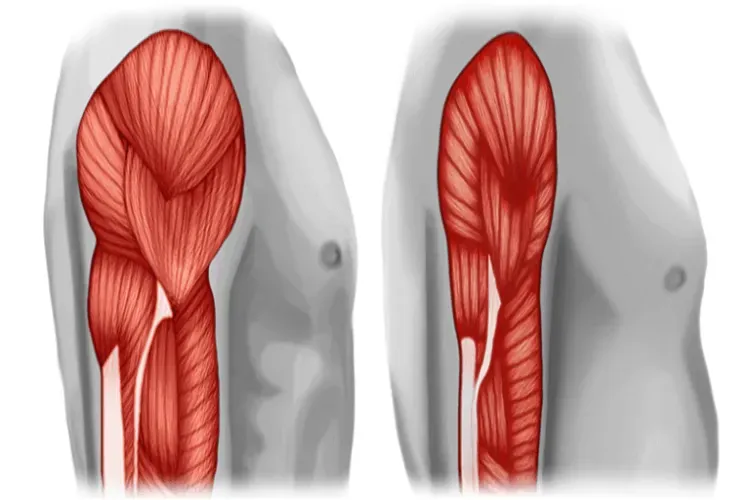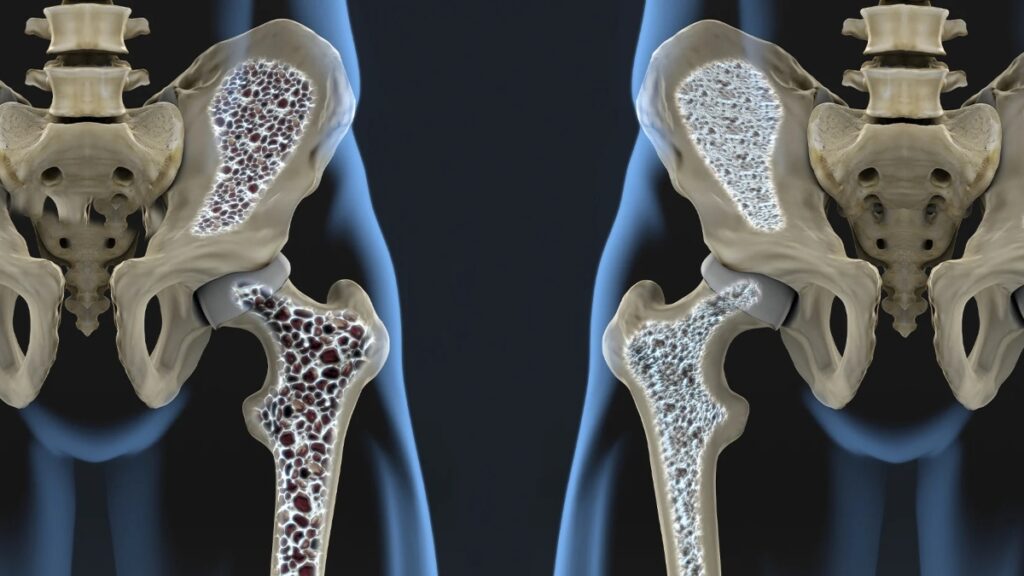Whey protein, derived from milk during the cheese-making process, has become a popular dietary supplement among athletes, fitness enthusiasts, and individuals seeking to gain muscle mass and enhance their overall health. Known for its high biological value and rich amino acid profile, whey protein offers a range of benefits, from muscle growth and weight management to improved immune function and cardiovascular health. This article delves into the 10 detailed benefits of whey protein, explaining how its benefits are not limited only to muscle gain rather supporting various aspects of health and wellness. Without further wasting anymore time, let’s know all the 10 benefits of whey protein that you may not know until now!

Muscle Growth and Repair
One of the most well-known benefits of whey protein is its ability to promote muscle growth and repair. This is largely due to its rich content of essential amino acids, particularly leucine, which plays a crucial role in muscle protein synthesis. Leucine, a branched-chain amino acid (BCAA) found in high concentrations in whey protein, is particularly effective at stimulating muscle protein synthesis. This process is vital for muscle growth, repair, and maintenance.

Whey protein is considered a complete protein, meaning it contains all nine essential amino acids that the body cannot produce on its own. This makes it highly effective for supporting muscle growth and repair, especially when consumed after exercise. Moreover, whey protein is quickly digested and absorbed, making it an ideal post-workout supplement. Rapid absorption ensures that muscles receive the necessary amino acids to begin the repair process immediately after exercise, reducing recovery time and improving overall muscle gaining process.
Weight Management
Whey protein can be an effective tool for weight management, aiding in both weight loss and muscle maintenance during dieting. Whey protein has been shown to increase feelings of fullness and satiety more than other protein sources. This can help reduce overall calorie intake and support weight loss efforts by curbing hunger and preventing overeating.

Protein consumption increases the thermic effect of food (TEF), which is the amount of energy required to digest, absorb, and metabolize nutrients. Whey protein’s high TEF means that it can help boost metabolism and promote fat loss. During weight loss, it’s crucial to preserve lean muscle mass to maintain metabolic rate. Whey protein helps prevent muscle loss by providing the necessary amino acids to support muscle protein synthesis, even in a caloric deficit as whey protein is very low in calories.
Immune System Support
Whey protein contains several components that can enhance immune function, making it a valuable supplement for overall health. Yes, it’s one of the most amazing benefits of whey protein that you may not hear of. Whey protein is rich in immunoglobulins, antibodies that play a key role in the immune response. These proteins help the body recognize and neutralize pathogens like bacteria and viruses.

Lactoferrin, another component of whey protein, has antimicrobial properties and can help support the immune system. It binds to iron, depriving bacteria of the iron they need to grow, and also has anti-inflammatory effects. In addition, whey protein is a good source of cysteine, an amino acid required for the synthesis of glutathione, a powerful antioxidant. Glutathione helps protect cells from oxidative damage and supports immune function.
Antioxidant Properties
Whey protein can enhance the body’s antioxidant defences, protecting against oxidative stress and its associated health issues. As mentioned earlier, whey protein is rich in cysteine, which is a precursor to glutathione. Higher glutathione levels improve the body’s ability to combat oxidative stress and maintain cellular health. The bioactive peptides in whey protein can help neutralize free radicals, reducing oxidative damage and lowering the risk of chronic diseases such as cancer, diabetes, and neurodegenerative disorders.
Cardiovascular Health
Whey protein can have a positive impact on cardiovascular health through several mechanisms. Several studies have shown that whey protein can help lower blood pressure, particularly in individuals with elevated levels. This effect is attributed to the presence of bioactive peptides in whey, which have been shown to have vasodilatory effects, improving blood flow and reducing blood pressure.

Whey protein may also help improve cholesterol levels. Some research suggests that it can reduce total cholesterol and LDL (bad) cholesterol while increasing HDL (good) cholesterol, thereby supporting cardiovascular health. Chronic inflammation is a risk factor for cardiovascular disease. Whey protein has been also shown to reduce markers of inflammation, potentially lowering the risk of developing heart-related conditions. Therefore, it’s certainly one of the most excellent benefits of whey protein.
Blood Sugar Regulation
Whey protein can aid in the management of blood sugar levels, making it beneficial for individuals with diabetes or insulin resistance. Whey protein has been shown to improve insulin sensitivity, which helps the body use glucose more effectively and maintain stable blood sugar levels. This effect is particularly beneficial for those with type 2 diabetes or metabolic syndrome.

Consuming whey protein before or with a meal can help reduce the postprandial (after meal) spike in blood sugar levels. This is due to whey protein’s ability to stimulate insulin release and slow gastric emptying, leading to more gradual absorption of glucose.
Digestive Health
Whey protein can support digestive health through its prebiotic properties and by promoting gut integrity. Whey protein contains components that can act as prebiotics, feeding beneficial gut bacteria and promoting a healthy microbiome. A balanced gut microbiome is essential for overall health, including immune function, nutrient absorption, and inflammation control.

The amino acids in whey protein, particularly glutamine, support the health and integrity of the gut lining. A healthy gut barrier prevents the leakage of harmful substances into the bloodstream, reducing the risk of inflammation and other health issues. So, it’s certainly another one of the most excellent benefits of whey protein.
Bone Health
Whey protein can contribute to bone health by providing essential nutrients that support bone density and strength. Whey protein is a good source of calcium, a mineral crucial for maintaining strong bones. Adequate calcium intake is crucial to prevent bone loss and reduces the risk of osteoporosis.

High-quality protein intake, such as whey protein, is associated with better bone density. Protein provides the building blocks for bone matrix, supporting bone strength and reducing the risk of fractures.
Anti-Cancer Properties
Some research suggests that whey protein may have anti-cancer properties due to its ability to enhance antioxidant defenses and immune function. By boosting glutathione levels, whey protein helps protect cells from oxidative damage and supports the detoxification processes, which can reduce the risk of cancer development.

Furthermore, the immunoglobulins and lactoferrin in whey protein support the immune system’s ability to detect and eliminate cancerous cells, contributing to overall cancer prevention. Undoubtedly, this is one of the greatest benefits of whey protein that is shockingly true!
Aging and Longevity
Whey protein can play a role in healthy aging by supporting muscle mass, immune function, and metabolic health. As we age, maintaining muscle mass becomes increasingly important to prevent sarcopenia (age-related muscle loss). Whey protein provides the necessary amino acids to support muscle health and function in older adults.

Supporting immune function is crucial for healthy aging, as the immune system tends to weaken with age. Whey protein’s immunoglobulins and lactoferrin can help maintain robust immune defenses. Last but not the least, by supporting blood sugar regulation and cardiovascular health, whey protein contributes to overall metabolic health, reducing the risk of age-related chronic diseases.
Conclusion
Whey protein offers a myriad of benefits, making it a valuable addition to the diet for individuals of all ages and activity levels. From promoting muscle growth and weight management to supporting immune function, cardiovascular health, and beyond, whey protein’s rich nutritional profile provides essential nutrients that support overall health and wellness. Whether used as a post-workout supplement or as part of a balanced diet, whey protein can help individuals achieve their health goals and improve their quality of life. As with any supplement, it is important to choose high-quality whey protein products and consult with a healthcare professional to determine the appropriate dosage and ensure it fits within an individual’s dietary needs and health conditions. Hopefully, you found this article on the benefits of whey protein helpful enough. If you really did then let us know your valuable thoughts in the comments down below. Thanks for visiting and appreciating our work.
